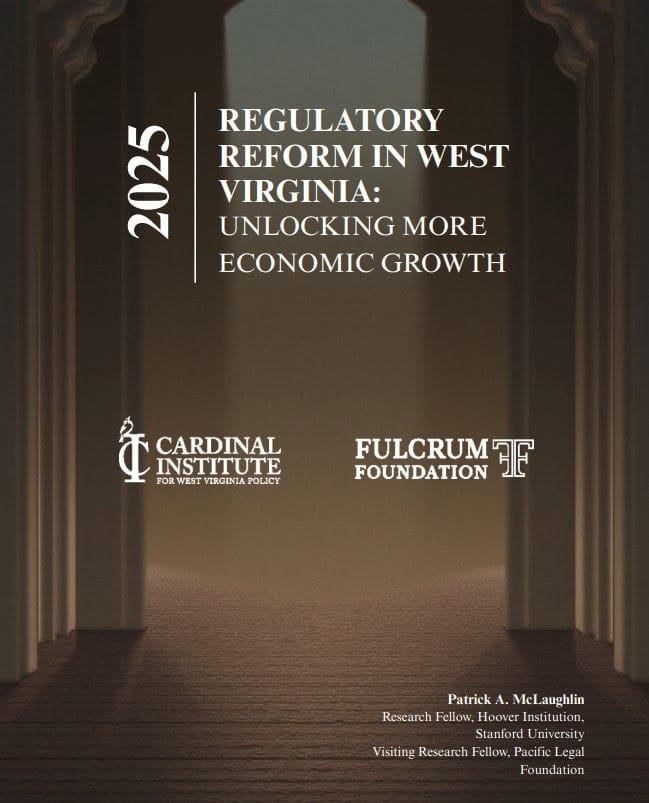
How Did Education Bills Do During the 2023 Legislative Session?
Cardinal Team
How Education Bills Fared During Legislative Session
The 86th Session of the West Virginia State Legislature adjourned Sine Die at 11:49 pm EST on March 11, 2023. This session was historic for a variety of reasons, especially related to K-12 Education. In February, the Cardinal Institute published a blog post highlighting our Top Five Education Bills to watch in 2023. Not only do we want to update you on which bills the legislature passed, but we want to highlight several others that legislators introduced after publication of that post.
Important Education Bills that Passed out of the Legislature
Two of the five bills we highlighted earlier in session cleared the legislature. Both of these bills underwent substantial change. They will ensure that West Virginians have access to a quality education.
House Bill 2820
House Bill 2820 establishes a pathway for private school students, Hope Scholars, and micro school and learning pod students to participate in WVSSAC sanctioned sports activities.
When HB 2820 was introduced, the bill was only related to Hope Scholarship recipients as well as microschool and learning pod students. HB 2495 was a separate bill designed to offer private school students a pathway to WVSSAC sanctioned sports. However, that bill was never considered by the House Education Committee. The version of HB 2820 that passed out of the legislature was merged with HB 2495 as well as Senate Bill 262, which modified transfer requirements for student athletes. The finalized version of the bill, as of the writing of this blog post, is unavailable on the legislature’s website. However, we can view the text of the amendments to help understand the new requirements for the bill.
The House Rules Committee amended HB 2820 to make several substantial changes to the bill. First, it removes the virtual course requirement for students seeking access to public school sports and extracurricular activities. Families under exemption m (the Hope Scholarship), exemption c (homeschooling), exemption n (microschools and learning pods), or exemptions b and k (private schools) must still meet the following requirements. Student test scores must be within or above the fourth stanine in all subject areas. The student must remain in compliance with SSAC rules. And the student must be an amateur not compensated for sports activities. Second, HB 2820 includes a provision which allows students to transfer school at least once during ninth and twelfth grade and maintain the eligibility to participate in SSAC sports.
Senator Patricia Rucker (R – Jefferson, 16) offered an amendment which further clarified that private school WVSSAC eligibility is reserved to their zoned public school, and they can’t transfer to play on their team if the activity is offered at their school. This means, if your son or daughter attends a private school that has a baseball team, you cannot transfer to your zoned public school to play on their baseball team. The House Rules Committee amendment already stated that a private school student is ineligible to play sports at a public school if the sport is offered at their private school. As of March 14, 2023, this bill has completed the legislative process and is awaiting the Governor’s signature.
Senate Bill 47
Senate Bill 47 establishes a stimulus fund to help startup West Virginia charter schools. This bill, which was sponsored by Senator Rucker, establishes a program which can provide to charter school applicants or start-ups that are not associated with an organization that exists primarily to fund or start charter schools. These funds, which can be as much as $300,000 are awarded by the West Virginia Professional Charter School Board (WVPCSB) during or before the first two-years of the charter school’s operation. A school may also apply to WVPCSB for an additional grant of up to $100,000.
If the school fails to begin operations within 30 months of receiving the grant, the applicant shall pay back the funds to the WVPCSB at a pro-rated rate of 10%. However, WVPCSB may extend the 30 month window in extenuating circumstances. Specifics on how the program will function are to be outlined in rules that will be promulgated on or before June 1, 2023 by the West Virginia State Board of Education. As of March 14, 2023, his bill has completed the legislative process and is awaiting the Governor’s signature.
Important Education Bills That Didn’t Make It
The three bills that did not pass would have benefited all West Virginians. Despite their fate this session, the legislature can be reintroduce and reconsidere them in the future.
House Bill 2619
The first bill is HB 2619. This bill would have removed the 45-day public school attendance requirement from the Hope Scholarship eligibility requirements. On February 16, 2023, the House Education Committee referred this bill with a recommendation that it do pass to the House Finance Committee. But the legislature did not consider the bill and it died in committee.
Senate Bill 506
Senate Bill 506 and its companion bill, HB 2912, both met similar fates in their respective chambers’ finance committees. The Governor requested these bills in his state of the state address. If passed, they would have supplemented the Hope Scholarship with an additional fifteen million dollars in funds. It would not have changed the funding formula for the Hope Scholarship.
House Bill 2133
Finally, House Bill 2133, was also not considered by the House Finance Committee. This bill, if passed, would have established an annual $3,000 per-taxpayer home school and private school tax credit.
Additional Education Bills Worth Knowing About
House Bill 2827
House Bill 2827 created the Safe Schools Fund to be used by county boards of education, public charter schools, and multi-county vocational centers. The funds are provided on an as needed basis for security improvements. These needs based improvements can include:
- hiring a school resource officer,
- installing weapon detection systems, and
- upgrading facility doors or windows.
But before these projects can be completed, the law requires that the funds be used to comply with the requirement in §18-20-11 of the West Virginia Code for video cameras in special education classrooms.
As of March 14, 2023, this bill has finished the legislative process and is awaiting the Governor’s signature.
Senate Bill 422
Senate Bill 422 requires that public schools publish curriculum online at the beginning of each new school year. This bill only gives students, parents, and guardians access to the curriculum. It also requires that schools log information on either their school’s website or the appropriate county board website. As of March 14, 2023, this bill has passed both chambers of the legislature and is awaiting the Governor’s signature.
Senate Bill 625
Senate Bill 625 requires that transcripts and records from microschools or learning pods be accepted as record of student’s previous performance for placement and credit assignment for microschool programs. The final version of this bill, as of the writing of this, is unavailable on the state legislature’s website.
House Bill 3408
A noteworthy bill that did not pass was HB 3408. It would’ve cleaned up statutory provisions regarding the Hope Scholarship to better reflect the intent and operation of the program. In its original form, this bill would have changed the way that the Hope Scholarship program is funded. It would have repealed the Hope Scholarship and microschool exemptions, placing microschools under exemption (c). It also would have allowed students under exemptions (b), (c), and (k) to participate in the Hope Scholarship program. The 45-day public school attendance requirement would have remained under this bill.
Several homeschool organizations expressed concern over provisions in the bill related to homeschooling. Because of this, legislators placed it on the House Calendar, meaning legislators wouldn’t considered it. The bill was revied and amended, cleaning up the concerns in the homeschooling law and keeping exemption (m) for Hope Scholarship participants who wished to participate in the Individualized Instruction Program – renamed Assembled Instructional Module. The bill passed the House, but the Senate Finance Committee did not consider it.
You can learn more about these and other bills on the West Virginia Legislature’s Website.
Andrew Bambrick is the Education Outreach Coordinator for the Cardinal Institute for West Virginia Policy.







